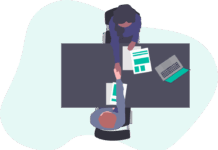We all make an effort to learn new things, from reading books about subjects that interest us to undergoing training in the workplace. The problem is that most of us forget most of what we’ve learned not long after we learn it.
So what strategies can you use to boost long-term memory and retention when learning new things?
The Many Types of Learning
First, it’s important to realize that there are many different types of learning, mostly based on what you’re trying to learn. For example, undergoing aerial lift training is very different from trying to memorize the Bill of Rights. Learning a new skill is not the same as learning new information, and neither of those is the same as learning to navigate a complex building or city.
You’ll need to experiment with a mix of different learning strategies to figure out what works best for you and what works best with the material or skills you’re trying to acquire.
How to Increase Memory and Retention When Learning Something New
That said, there are many general strategies you can use to improve your memory and retention.
- Understand how you learn best. What type of learner are you? Do you typically learn best by practicing with your own hands? Are you a visual learner, or do you prefer auditory lessons? If you don’t know, now could be a good time to explore that territory and figure it out. Once you have an idea of your learning style, you can create and harness the power of an ideal learning environment.
- Employ spaced repetition. Spaced repetition is the best strategy for most people to learn – and remember – new information. The two components of this strategy are, unsurprisingly, “repetition” and “spacing.” You need to be able to repeat the action or set of information, and do so over and over, and you need to do it at spaced, regular intervals. For example, if you’re memorizing a list of 50 items, you might review 25 items, take a break, review the next 25 items, take a break, and repeat, with ample breaks in between. This is far more effective than cramming all at once, regardless of how much time you spend during that session.
- Take breaks. In line with this, it’s important to take breaks. It’s tempting to work as hard as possible when trying to learn something new, but you’re usually better off giving your mind and body a chance to rest. Schedule your breaks at regular intervals to ensure you actually take them, and use a mix of both long and short breaks.
- Use mnemonics and other forms of encoding. Pneumonic devices are designed to make it easier to remember something by linking it to a familiar or more easily memorable structure. There are countless examples of this that you’ve probably already utilized, even if you only did so at the behest of another teacher or individual. Consider creating your own mnemonic devices, or use other forms of encoding so you have an easier time remembering the new information.
- Make new connections. Similarly, you should strive to make new connections between the material you’re learning and things you already know or are familiar with. Depending on what you’re learning, this may be very easy or very difficult, but it’s going to help you see the information in context and remember it more easily.
- Practice active recall. Active recall is the strategy of calling something to memory shortly after learning it. It’s something you should be doing regularly throughout your studying and learning activities. One simple way to do this is to stop reviewing the material, close your eyes, and repeat the material back to yourself to see if you can remember it. It’s a great way to practice spaced repetition, and it’s also a way to test yourself and determine how well you’re remembering things.
- Tinker with microlearning. Microlearning is a somewhat new strategy designed to minimize fatigue when learning. Instead of learning large swaths of material at the same time, you’ll focus on learning in bite-sized, granular packages. To pursue this, break the material down as much as possible and focus on only one small unit at a time.
- Get plenty of sleep. Finally, work on getting plenty of sleep. Not only will this help you consolidate your long-term memory, but it will also help you achieve greater focus and attention in your subsequent learning sessions.
As we’ve already explored, every situation is unique. You are a unique learner, and what you’re learning is unique as well. Although nearly all of these strategies can help most people in at least some ways, you’ll need to experiment and refine your approach if you want to achieve your full potential in this area.








